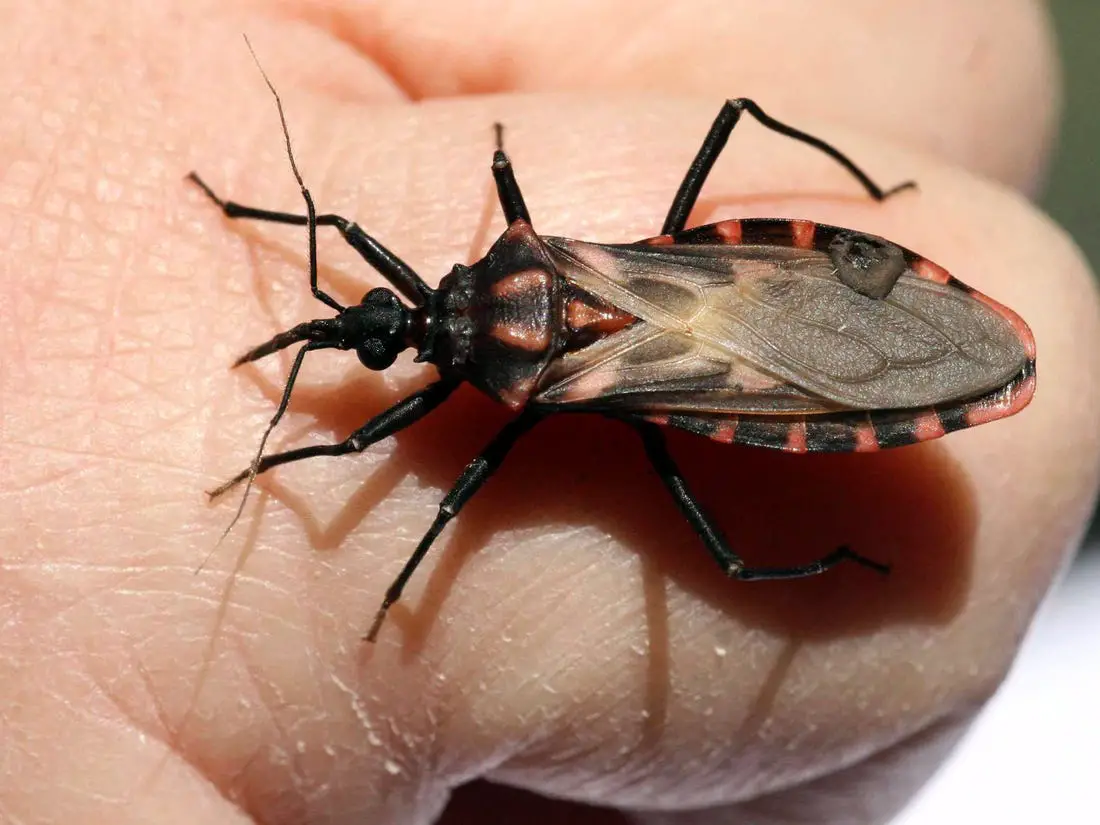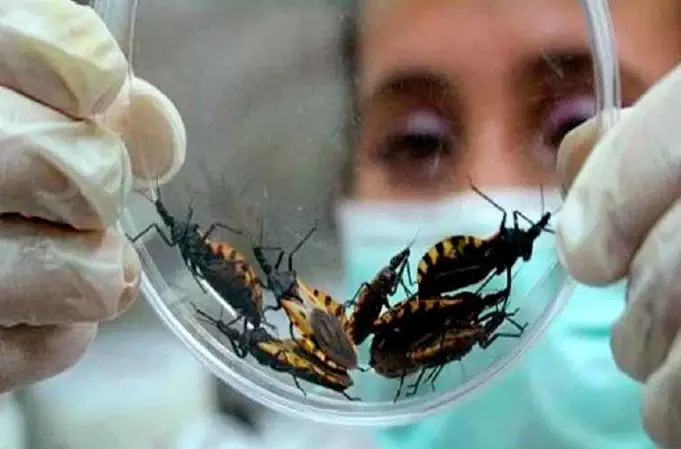This is an inflammatory and a highly contagious disease inflicted by the parasite Trypanosoma cruzi, which is found in the faeces of the reduviid bug also called the kissing bug.
Chagas disease is a common disease in South America, Central America and Mexico, which is the primary habitat of the triatomine bug also known as the reduviid bug.
The Chagas disease also called American trypanosomiasis when left untreated, can cause severe problems to the heart and digestive system.
The treatment of Chagas disease concentrates on killing the disease-causing parasite in the acute stage and managing signs and symptoms in the chronic stage.
About 6 million to 7 million people are estimated to be infected with Trypanosoma cruzi parasite worldwide. Chagas disease is mostly vector-borne transmitted to humans by contact with faeces or urine of triatomine bugs.
Symptoms of chagas disease
Chagas disease can cause an abrupt, sudden sickness (acute), or it can manifest in a long-lasting (chronic) condition. Indications can range from mild to severe, although it could be asymptomatic until the chronic stage.
Acute stage
The acute stage of Chagas disease can last for weeks or months, and can often be asymptomatic but when signs and symptoms occur, they are usually mild and can include:
- Inflammation at the injection site
- An abnormally high body temperature, usually accompanied by shivering, headache.
- Exhaustion
- Rashes on the body
- Body pains
- Swollen eyelids
- Headache
- Food aversion
- Enlargement of your liver or spleen
- Nausea, diarrhoea or vomiting
Signs and symptom that materialise at the acute stage, most times go away on their own. If left untreated, the infection persists and, in some cases, progress to the chronic stage.
Chronic stage
Indications of this phase of Chagas disease may arise 10 to 20 years after prior infection, or they may never occur. Although severe cases, Chagas disease signs and symptoms may include:
- Abnormal heartbeat
- heart failure/attack
- Sudden cardiac arrest
- Complication swallowing due to the engorged oesophagus
- Abdominal pain or constipation due to the inflamed colon
Causes
Chagas disease is caused by the parasite Trypanosoma cruzi, which is transmitted from the triatomine bug(reduviid bug).
This bug can become infected by the American trypanosomiasis when they consume blood from an animal infected with the parasite. Triatomine bugs live largely in mud, thatch or clay huts in Mexico, South America and Central America.
They hide in crevasses in the walls or roof at daytime, then come out at night where they often feed on sleeping humans, these infected bugs excrete after feeding, leaves behind Trypanosoma cruzi parasites on the skin of humans.
The parasites can then enter the body via the eyes, mouth, injuries or the wound from the bug’s bite. Scratching the site of the bug’s bite aids parasites’ entrance to the body.
Upon entering the body, the parasites reproduce and spread. One can also become infected by:
- Eating raw food contaminated with faeces from Trypanosoma cruzi-infected bugs
- A child born to a woman infected with Trypanosoma cruzi
- Blood transfusion containing infected blood
- An organ transplant containing Trypanosoma cruzi
- Working in a laboratory where there’s an exposure to the parasite
- Hiking and camping in forests that contains infected wild animals, such as raccoons and opossums
Risk factors
- The following factors may increase one’s risk of getting Chagas disease;
- Living in underprivileged areas of Central America, South America and Mexico
- Living in a house that contains triatomine bugs
- Getting a blood transfusion or organ transplant from a person who carries the disease.
Complications

If Chagas disease advances to the chronic stage, severe heart or digestive problems can occur. That may include:
Heart failure: Heart failure can occur when the heart becomes too weak or stiff that it can’t pump enough blood to meet the body’s needs.
megaesophagus: This rare condition is caused by the abnormal widening, enlargement (dilation) of the oesophagus, which can cause difficulty swallowing and digestion.
Abnormal swelling of the colon (megacolon): Megacolon happens when the colon becomes abnormally enlarged causing abdominal pain, distention and serious constipation.
Prevention of chagas disease
if one lives in a high-risk area for Chagas disease, these steps can be taken to prevent infection;
- Sleeping in mud, thatch or clay houses as these types of residences are more likely to habitats for triatomine bugs.
- Use of insecticide-soaked netting over the bed when sleeping in thatch, mud or adobe houses can prevent the disease
- Use of insecticides to remove insects from the residence.
- The use of insect repellent on exposed skin or wearing coveralls when in high-risk areas can prevent the triatomine bugs.
If one is diagnosed with Chagas disease using the symptoms, one is likely to undergo more tests to see the stage the disease has gotten. These tests may include:
- Electrocardiogram
- A Chest X-ray
- Echocardiogram
- Abdominal X-ray
- Upper endoscopy
Treatment
To exterminate the parasite, benznidazole and also nifurtimox can be used to treat Chagas disease, both medicines are believed to be 100% efficient in curing the disease if administered soon after infection at the onset of the acute stage including the cases of genetic transmission.
The potency of both diminishes, as the longer a person has been infected, the less the efficacy of the drugs. Treatment can also be prescribed for those who have relapsed (for instance, as a result of immunosuppression), and for patients during the initial chronic stage.
Infected adults, particularly who are asymptomatic, should be given treatment because the antiparasitic medication may also prevent or curb the disease progression and prevent genetic transmission in pregnant women.
In chronic stage symptoms can only be managed, Treatment may include medications, a pacemaker or other devices to regulate the heart rhythm, surgery or even a heart transplant to alleviate complications affecting the heart as a result of Chagas disease while Digestive-related complications treatment can also include diet revision, medications, or in serious cases, surgery.












